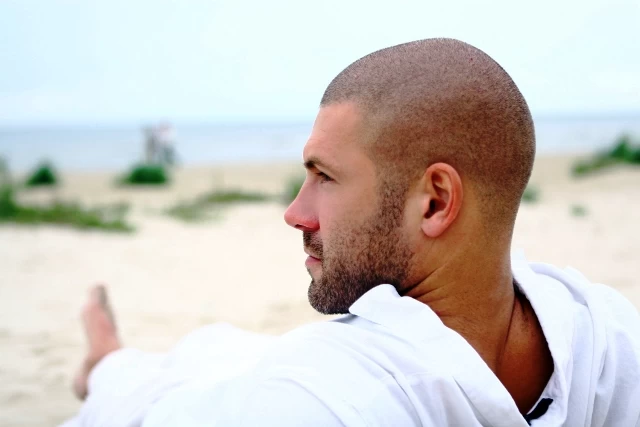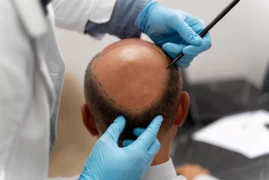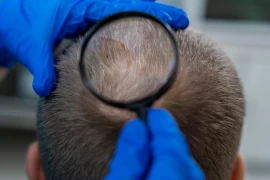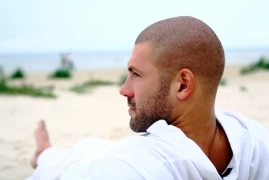
The Impact of Seasons on Hair Transplantation with a Focus on Summer
- The Impact of Seasons on Hair Transplantation with a Focus on Summer
- Is There an Impact of Seasons on Hair Transplantation?
- Hair Transplantation in the Summer
Is There an Impact of Seasons on Hair Transplantation?
Yes, seasons can have some influence on hair transplantation. Seasons can affect factors such as the success rate of the procedure, the healing process, and the outcomes of hair transplantation. Here is a general overview of the effects of seasons on hair transplantation:
- Summer Season: The summer season offers several advantages for hair transplantation. Warm weather can accelerate the healing process by aiding in better graft retention due to increased sweating. Additionally, UV rays from sunlight can help eliminate microbes on the scalp, reducing the risk of infection. However, it's important to avoid direct sun exposure immediately after the surgery. Undergoing a hair transplant in the summer allows patients to combine it with their vacation time and wear more comfortable clothing.
- Winter Season: While the winter season has some advantages, it can also present challenges for hair transplantation. Cold weather can cause discomfort during the healing process. Additionally, the need to wear hats or beanies in the winter months can potentially damage hair grafts or displace them. However, the reduced sun exposure in winter may lessen the impact of UV rays.
- Spring and Fall: Spring and fall are suitable for hair transplantation due to their moderate weather conditions. The balanced temperature and humidity can contribute to a more comfortable healing process. Additionally, the lower intensity of sunlight during these seasons reduces the risk of sun exposure.
While seasons may not directly impact the final results of hair transplantation, they can influence the healing process and comfort. The most suitable season for a hair transplant may vary depending on the individual's preferences, local climate, and the recommendations of the expert. Therefore, it's important for anyone considering a hair transplant to consult a hair transplant specialist to determine the best season.

Hair Transplantation in the Summer
Hair transplantation is a popular cosmetic procedure that provides a natural and permanent solution for individuals experiencing hair loss. People opt for hair transplantation to address hair loss issues and achieve fuller, healthier hair. The procedure involves transferring hair follicles from one area to bald or thinning areas. The summer season can offer several advantages for those considering hair transplantation. In this article, I will share important information about hair transplantation in the summer.
- More Comfortable Healing Process: The summer season is typically characterized by warm and sunny weather. The post-transplant healing process is crucial, and it can be more comfortable during the summer months. Sweating during the healing process can help the hair follicles adhere better. Additionally, sunny weather can have a positive impact on the healing process. UV rays from the sun can help eliminate microbes on the scalp, reducing the risk of infection. However, taking precautions such as wearing a hat or using sunscreen to protect against direct sun exposure is important.
- Possibility of Vacation: Summer months are often associated with vacation time. Many individuals prefer to combine their hair transplantation procedure with their vacation period. This allows for a more relaxed healing process and the opportunity to unwind during the vacation. However, it's important to avoid exposure to the sea, pool, or direct sunlight immediately after the surgery. There are a few weeks post-surgery that require careful attention, and avoiding direct sunlight during this period is recommended.
- Increased Freedom: During the summer, people tend to wear lighter and more comfortable clothing. After a hair transplantation, wearing a bandage or a cap might be necessary for a certain period. Since lighter and thinner clothing is worn in the summer, these accessories can be concealed more easily and attract less attention. Additionally, cooling off or taking a shower to soothe the scalp after the procedure is easier in the summer.
- Healthy Nutrition: Summer is a time when fresh fruits and vegetables are abundant. A healthy diet is important for the successful outcome of a hair transplantation. Consuming foods rich in vitamins, minerals, and antioxidants can support the health of hair follicles and accelerate the healing process. Since summer provides easier access to fresh and healthy foods, undergoing a hair transplantation during this season can facilitate maintaining healthy eating habits.
In conclusion, the summer season might be an ideal time for hair transplantation. It offers benefits such as a more comfortable healing process, the possibility of a vacation, increased freedom, and access to healthy foods. However, since each individual's situation is unique, it's important to consult a hair transplant specialist before undergoing the procedure and determine the most appropriate time. Experts will conduct a thorough assessment to determine the best season and method for each patient.
Having healthy and voluminous hair is everyone's right. Hair transplantation can offer an effective solution to achieve this goal, and the summer season can make this process more enjoyable.





